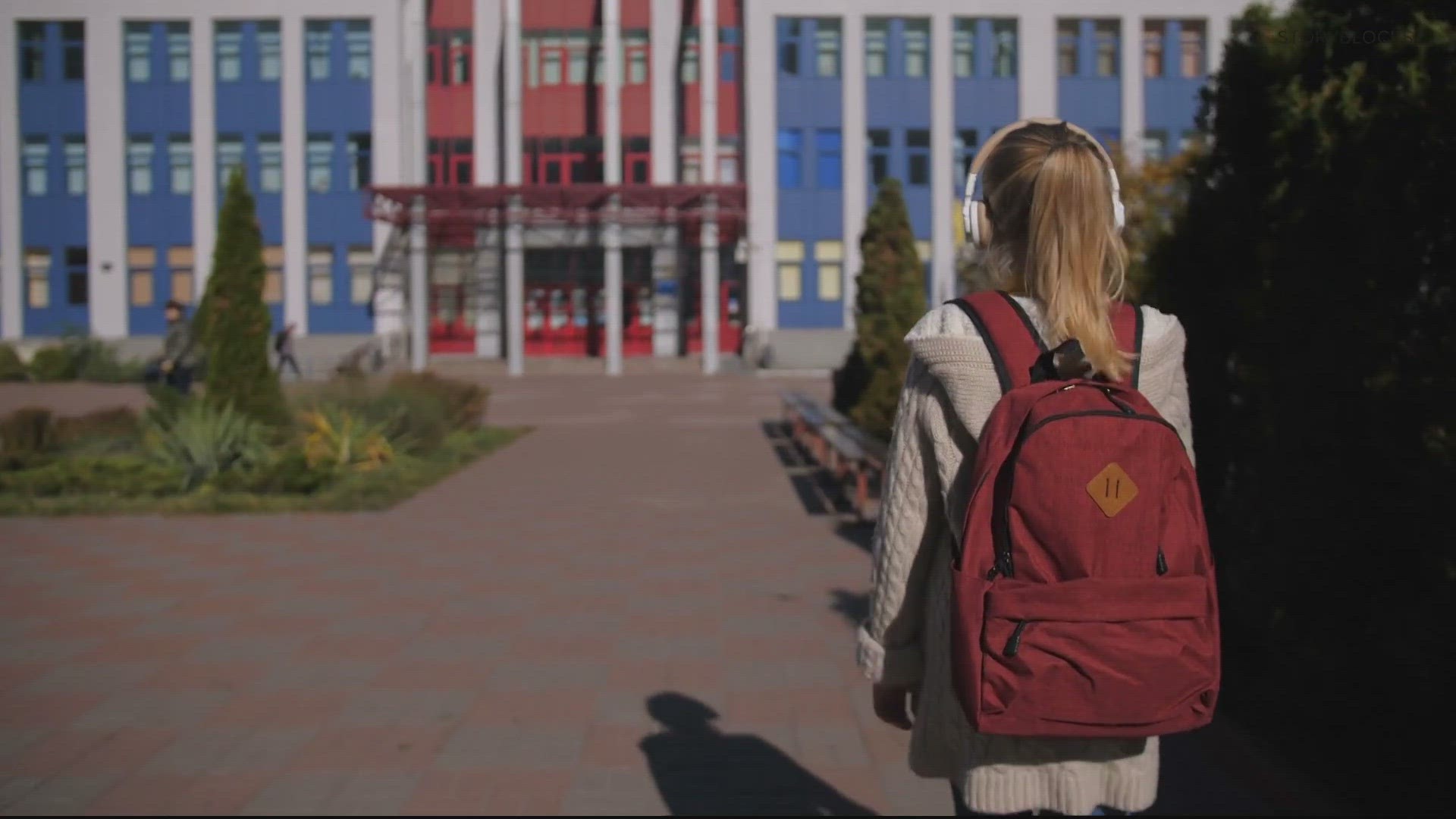WASHINGTON — We’re talking back to school — with an emphasis on the back. Lugging around supplies, athletic gear, and textbooks can really weigh on students, but could it even be bad for their health?
THE QUESTION:
Can heavy backpacks cause health issues for kids?
THE SOURCES:
- American Academy of Pediatrics
- The National Safety Council
- Dr. Sean Tabaie, orthopedic surgeon at Children’s National Hospital
THE ANSWER:
Yes, so it’s important to limit their weight and use them properly.
WHAT WE FOUND:
Students are no doubt focused on the weight of everything else a school year brings, so sometimes it takes the rest of the family to watch their backs.
“Little kids, they are very resilient, but you know, we all get older, they get bigger naturally, kids get taller, but they also gain weight,” said Dr. Sean Tabaie, orthopedic surgeon at Children’s National Hospital. “Little repetitive issues they have at a younger age or stress on their body builds up and adds on.”
The recommendation from the American Academy of Pediatrics is to carry no more than 15 percent of your body weight on the back–that’s just seven and a half pounds for a 50 pound child.
“A couple of pounds distributed unevenly can definitely throw their posture off a little bit, and postural issues can lead to joint pains as children grow up,” explained Dr. Tabaie.
The National Safety Council says it’s not just the weight–but how you carry it: opt for a two-strapped backpack, worn properly, with the heaviest items centered in the main compartment. Encourage students to use lockers and other storage spaces when possible, and only carry the necessary supplies and equipment back and forth between home and school.
Dr. Tabaie says lightweight tablets and computers replacing heavy textbooks help, but days spent folded over a screen can present their own challenges. To prevent stiffness and issues with using tablets and computers, though, Dr. Tabaie doesn’t recommend breaking out a ruler and becoming posture police, but instead offering a better positioned environment.
“What I do recommend is trying to set them up for success, you know, position their desks in a way like look at them sitting in their seats and try to lower or elevate their seats, their chairs in a way that sets them up better, position their monitors as well.”
Regular breaks to move around also help–this goes for kids sitting at a screen and adults working at a desk all day. Keeping active and flexible is a good way to prevent aches and pains when seated.
“So hopefully all these little ones going back to school had a great active summer,” said Dr. Tabaie, “so now they're they're ready to hit the classroom and carry their backpacks appropriately.”

